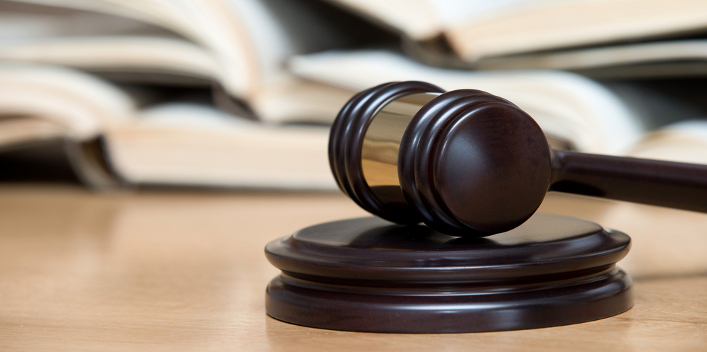760.745.7576
PROBATE LAW
Section 4 - Estate Inventory, Appraisal And Record Keeping
Inventories and Appraisals
A personal representative is required to prepare a complete inventory of all assets owned by the decedent at the time of his or her death. The inventory is a very important document in the administration of an estate. It is the starting point for almost all the tax returns and for the accounting that must eventually be filed with the court. The assets listed in the inventory plus certain other nonprobate assets (such as life insurance, joint tenancy property, and trust assets) comprise the decedent's estate for tax purposes.
After all of the estate's assets are listed on the inventory, the personal representative places a value on cash and some other similar items. The inventory is then submitted to the court-appointed probate referee. Our office can discuss with the personal representative whether an independent appraisal of any real property or other estate assets should be made. The fees paid to appraisers are proper expenses of the estate and can be claimed as estate or income tax deductions. Ordinarily, the independent appraisers' reports are submitted to the probate referee with the inventory and are also filed as part of the federal estate tax return.
Please make certain that insurance coverages on insurable assets are kept up to date and that the insurance amounts are adequate in light of the assets' appraised values. It is usually possible to continue coverage on a property that has been vacated by the death of the Decedent, but it is very difficult and expensive to get new coverage on a vacant residence. We will prepare the estate inventory as soon as sufficient information is available.
Estate Bank Accounts
Once the personal representative is in possession of the Letters Testamentary an estate checking account should be opened. Cash and uncashed checks in the possession of the decedent at the time of his or her death, except for cash in savings accounts, should be deposited in the estate checking account. All subsequent receipts should be deposited in the estate checking account and all disbursements should be made by check. Personal representatives should not commingle their own funds with estate funds. Substantial amounts of estate funds should not be kept for any appreciable period in the estate checking account. Instead, funds not required for current expenditures and imminent distributions should be kept in an interest-earning estate savings account. The personal representative can be personally surcharged (fined) for failing to make estate assets income producing.
The decedent's savings accounts, if any, should be transferred into the estate's name. Since all estate receipts and disbursements should be recorded in the estate checking account, all deposits to a savings account should be by estate check and all withdrawals from a savings account should be deposited in the estate checking account. No more than $100,000 should be kept in any FDIC insured account. For estates in excess of $100,000, multiple accounts should be opened. No more than $500,000 should be kept in any brokerage account.
Records and Accountings
Keeping careful records is an essential part of a personal representative's duties. The personal representative must either keep detailed records of all estate transactions, or, as discussed earlier, have someone else keep them. The record of estate receipts and disbursements will be needed in preparing the accountings required by the probate court. In addition, records will be needed for the preparation of estate and income tax returns. Checking and savings account records will be needed for the preparation of estate and income tax returns. Checking and savings account records and statements supplied by stockbrokers, trust company agents, mutual funds, and others provide much of the information needed to prepare accountings and tax returns.
The information you obtain at this site is not, nor is it intended to be, legal advice. You should consult an attorney for individual advice regarding your own situation.
Inventories and Appraisals
A personal representative is required to prepare a complete inventory of all assets owned by the decedent at the time of his or her death. The inventory is a very important document in the administration of an estate. It is the starting point for almost all the tax returns and for the accounting that must eventually be filed with the court. The assets listed in the inventory plus certain other nonprobate assets (such as life insurance, joint tenancy property, and trust assets) comprise the decedent's estate for tax purposes.
After all of the estate's assets are listed on the inventory, the personal representative places a value on cash and some other similar items. The inventory is then submitted to the court-appointed probate referee. Our office can discuss with the personal representative whether an independent appraisal of any real property or other estate assets should be made. The fees paid to appraisers are proper expenses of the estate and can be claimed as estate or income tax deductions. Ordinarily, the independent appraisers' reports are submitted to the probate referee with the inventory and are also filed as part of the federal estate tax return.
Please make certain that insurance coverages on insurable assets are kept up to date and that the insurance amounts are adequate in light of the assets' appraised values. It is usually possible to continue coverage on a property that has been vacated by the death of the Decedent, but it is very difficult and expensive to get new coverage on a vacant residence. We will prepare the estate inventory as soon as sufficient information is available.
Estate Bank Accounts
Once the personal representative is in possession of the Letters Testamentary an estate checking account should be opened. Cash and uncashed checks in the possession of the decedent at the time of his or her death, except for cash in savings accounts, should be deposited in the estate checking account. All subsequent receipts should be deposited in the estate checking account and all disbursements should be made by check. Personal representatives should not commingle their own funds with estate funds. Substantial amounts of estate funds should not be kept for any appreciable period in the estate checking account. Instead, funds not required for current expenditures and imminent distributions should be kept in an interest-earning estate savings account. The personal representative can be personally surcharged (fined) for failing to make estate assets income producing.
The decedent's savings accounts, if any, should be transferred into the estate's name. Since all estate receipts and disbursements should be recorded in the estate checking account, all deposits to a savings account should be by estate check and all withdrawals from a savings account should be deposited in the estate checking account. No more than $100,000 should be kept in any FDIC insured account. For estates in excess of $100,000, multiple accounts should be opened. No more than $500,000 should be kept in any brokerage account.
Records and Accountings
Keeping careful records is an essential part of a personal representative's duties. The personal representative must either keep detailed records of all estate transactions, or, as discussed earlier, have someone else keep them. The record of estate receipts and disbursements will be needed in preparing the accountings required by the probate court. In addition, records will be needed for the preparation of estate and income tax returns. Checking and savings account records will be needed for the preparation of estate and income tax returns. Checking and savings account records and statements supplied by stockbrokers, trust company agents, mutual funds, and others provide much of the information needed to prepare accountings and tax returns.
The information you obtain at this site is not, nor is it intended to be, legal advice. You should consult an attorney for individual advice regarding your own situation.

- Duties Of Personal Representative
- Steps Prior To Formal Administration Of Estate
- Claims Against Estate
- Estate Inventory, Appraisal And Record Keeping
- Estate Taxes
- Estate Expenses And Compensation
- Estate Allowances And Distributions
The information you obtain at this site is not, nor is it intended to be, legal advice. You should consult an attorney for individual advice regarding your own situation.
Copyright 2018 © by Jacqueline M. Skay. All rights reserved. You may reproduce materials available at this site for your own personal use and for non-commercial distribution. All copies must include this copyright statement.
Copyright 2018 © by Jacqueline M. Skay. All rights reserved. You may reproduce materials available at this site for your own personal use and for non-commercial distribution. All copies must include this copyright statement.

